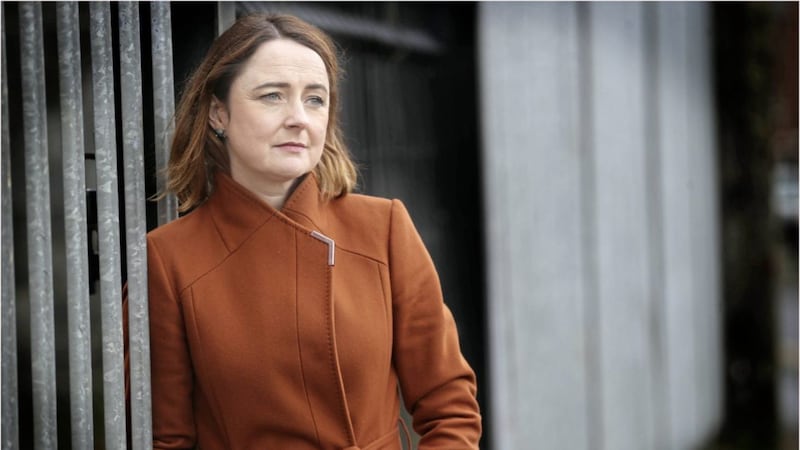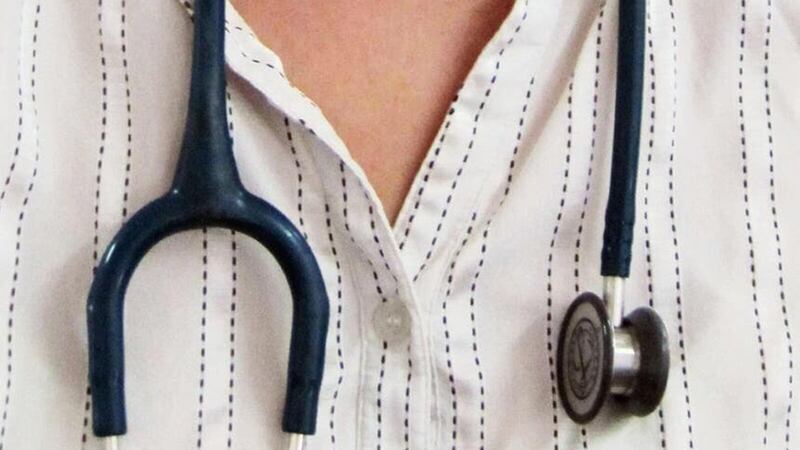PROFESSOR Siobhan O'Neill's first ever experience of suicide was as a student.
Studying for a masters degree in Galway more than 20 years ago, she decided to volunteer with the Samaritans where she had her "eyes opened" to the complexity of the issue by listening to people affected.
By 2005, the Ulster University academic had embarked on a ground-breaking international study which examined mental health across 30 countries - and that would form the basis for her influential work on suicide prevention.
More than 4,500 people were interviewed for the research that laid bare for the first time the "hidden rates" of mental illness in Northern Ireland.
Focus on mental health
- Suicide: 15 years on from Danny's death, we thought things would be different now
- Links between suicide and paramilitary attacks needs addressed
- Finland: from suicide crisis to globe's 'happiest' country
"We were essentially knocking on doors and asking people about their lives," the UU Professor of Mental Health Sciences said.
"That study told us the rates of mental illness here were much higher than other places, that Post Traumatic Stress Disorder was the highest of all those countries - with nearly 40 per of our population having witnessed a Troubles-related traumatic event. These events were associated with significant mental illness and suicidal thoughts and behaviours too.
"We didn't expect the results, we held the belief that we were entering a period of peace and we were all going to be okay. That was the narrative at the time. Even when we published the results (in 2008), people didn't believe us. Now people do accept it."
Professor O'Neill said she is conscious that the people interviewed are now parents and grandparents.
"There's a whole generation that haven't been exposed to the Troubles that still have significant mental illness which is where my interest in trans-generational trauma comes in."
Passionate about the need to raise awareness while "busting myths", the Derry woman is involved in the second phase of of the implementation of the north's suicide strategy, known as 'Protect Life 2".
"We know that 70 per cent of people who die by suicide aren't in touch with mental health services. Many of them may not even benefit from mental health services," she said.
"Life events are hugely important. So when you look at austerity, you will find an increase in suicide. Financial crisis, relationship break-ups - all of these things creates crisis and make us think about the purpose and meaning of our lives.
Read More
Spike in number of referrals to children's mental health services leaves hundreds on waiting lists
"We're also looking to risk factors in our society - abuse of alcohol and drugs are major problems in Northern Ireland and they're much more likely to be in suicide figures. But we also need to look at the trauma of Troubles."
With the most up-to-date figures on suicide rates from 2018, when a total of 307 people took their own lives in the north, Professor O'Neill spoke of her frustration around the "perception" that the number of deaths had risen - when they have in fact plateaued in recent years.
The north, however, continues to have the highest rates in the UK, despite more than £80 million being spent on a a regional strategy since its launch 14 years ago.
Between Christmas and early January this year, there were a reported five suicides in north Belfast, including that of an 11-year-old boy.
"There is a perceived increase in the number of deaths. You get a cluster of deaths in one area and people talk about them openly and hold a vigil. Then all of a sudden the country's talking about it. You could have a few deaths of older people in rural areas and that isn't mentioned," Prof O'Neill said.
"Seasonal variation also has a role to play, you'll always get a rise in suicides in January and there'll be a dip before that.
"The reported suicide of the 11-year-old child is really exceptional, it's tragic...as there hasn't been a death in someone under the age of 15 in a long time. But we also have to wait for the coroner to determine it as a suicide, they are the only person who can do that."
She is also critical of the "glamorisation" or "romanticisation" of the issue and said the media has a central role to play in "responsible and informed" coverage as well as language used.
"We know families really do get offended when the word 'commit' is used in relation to suicide, because it refers to a sin or crime. The person acts because they are in pain, they see no other option and they are not committing a sin or offence.
"They used to handcuff people in coffins as a signal their suicide was not socially acceptable... this didn't work. The idea was that to prevent something, you tell people it's a sin.
"The problem is that it makes people feel guilty for even having those thoughts, makes people less likely to come forward and more likely that a suicide will be covered up afterwards. It is good to talk about suicidal thoughts."
The New Zealand government in 1988 made it a criminal offence to report details of suspected suicides until the coroner ruled it was safe to publish details. This has since been relaxed, but strict guidelines remain for fear of 'copycat' deaths.
At a funeral Mass of young man who died from a drugs-related death in north Belfast last month, a high-profile priest launched a scathing attack on those who suggest the dead are "partying with the angels" and are "forever young" - referencing social media posts.
Prof O'Neill said: "When we look at suicidal behaviour, it is a behaviour and people are influenced by what see and hear in the media. The correlation goes back centuries and is known as the 'Werther effect'' - based on 1774 novel by Goethe in which the suicide of 'young Werther' is depicted.
"This is not a new phenomenon - there's over 100 studies on this. When the American actor Robin Williams died there was a 10 per cent increase in deaths by suicide in US by men in that age group.
"No-one is suggesting that suicides aren't reported but our advice to journalists is not to portray the method or location even."
When asked if she thought the first phase of the Protect Life strategy had failed due to the rates remaining high, Professor O'Neill said this was an unfair assumption.
"We don't know what has worked as we can't count the lives saved. The suicide rate hasn't gone down but it may well have risen further."
But she added that the second phase of the £10m strategy - which was stalled due to the collapse of Stormont before being introduced last autumn - takes a very different approach due to new research over the past decade.
It aims to reduce suicides in the north by 10 per cent over the next five years.
However, it also has a "Towards Zero Suicide" approach towards mental health services in all five trusts as well as the prison population - and on the day we met, Professor O'Neill had just returned from her first visit from Maghaberry prison where she discussed their work.
Central to the original strategy was the creation of a 24-hour free helpline - 'Lifeline' - which provided support to those in crisis and was followed up by counselling.
"Those services were never there before, so I think that was quite radical," she said.
But Professor O'Neill said the first model also linked suicide to mental illness - whereas the new approach recognises that suicide is "triggered by certain things".
"Ten years ago we would have said, we get people into mental health services and they won't be suicidal any more. Now we have theoretical models of suicide prevention, we have interventions that work with suicidal thoughts, that actually ask the person; what is suicide going to do for you, why do you not want to live? No-one wants to die, suicidal people just don't want the life they think they have ahead of them.
"Our new suicide prevention is about working with those thoughts, working out what causes them and also getting people through that time when they're at they're worst."
Lifeline is still operational and will be enhanced by the new work.
Work on the ground include new ways of training GPs to help those in crisis, with enhanced training in the community to help spot those at risk.
"What is different about Protect Life 2 is that we have a whole load of information that we are able to roll out, so we can train GPs for example in how to identify people at risk. We know that people who are suicidal are much more likely to present to their GP maybe with a headache or backache.
"The issue around waiting lists is not relevant to the vast majority of people who die by suicide, according to our studies.
"So Protect Life 2 is about creating a network. We also realise that people find it very difficult to talk about their suicidal feelings. They don't come forward themselves, we need to encourage other people to help them.
"This new strategy is about training people in the community about the signs and risk factors. This is so important - this is a call to the media. We tell the media what not to do, this is what the media can do. It's about messages on how to spot when people are suicidal and how to ask the right question.
"And it's about busting those myths about suicide. It's not someone with a mental illness, it's me, it's you. It's about knowing when it's ok to ask if someone is suicidal and what to do."
Helplines
Lifeline is a Northern Ireland crisis response helpline service for people experiencing distress or despair. People living in Northern Ireland can call Lifeline on 0808 808 8000. Deaf and hard-of-hearing textphone users can call Lifeline on 18001 0808 808 8000.
The charity Pips delivers suicide prevention and bereavement support services, counselling and therapies throughout Northern Ireland. It can be reached on 028 9080 5850 or 0800 088 6042.
Samaritans provides a listening service if you need to talk about what you're going through. The number is 116 123.







